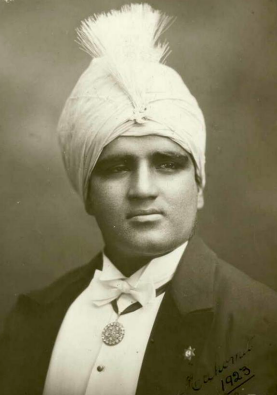
Above: Cass Mahomet
Chances are you’re all Anzac-ed out by now but amid all the old war stories I’ve read the past week there are a couple that didn’t get much mileage.
The Great War’s battlefields of Gallipoli and France and Belgium are bitter testament to the human race’s propensity for absurd self-mutilation. Likewise, its sequel’s broader geographic disasters, calamitous holocausts, pogroms and nuclear annihilations.
The first war viciously split Australian society along religious lines. Catholics refused to fight while Protestants marched off to an adventure that soured horribly. The second war’s atrocities left a ferocious bitterness it took generations to overcome.
Numerous individual stories underscore this history. And lest we forget.
Two little-known Geelong stories, however, provide an enlightening take on the human condition, its allegiances and society and perhaps even a positive way forward from the crucible of war.
The first story is one we’ll find out more about when Geelong academic Dzavid Haveric’s latest book is published later this year. He gave me the inside running on it last week. And yes, that’s Dzavid with a Z, he’s of Bosnian extraction.

Moheddeen Abdul Ghias ‘Bob’ Howsan
His story is actually a collection of stories. Up to a hundred stories of Muslim soldiers demonstrating their loyalty, patriotism and contribution to the Australian Army, and sharing their experience with Australian non-Muslims.
A typical bloke was Charley Khan, a cook who fought in Gallipoli and one of the best soldiers of his time according to his Aussie mates. Likewise, Tatar Muslim Abdul Ganivahoff who was trebly wounded and killed on the Western Front.
Indian Muslim Cass Mahomet was a poet, singer, composer and performer who after the war travelled in uniform promoting Australia. Colour or creed made no difference in the AIF, he said. Indonesian and Malay Muslims also fought for Australia in WW2. Many worked in sugarcane farming or the pearl industry.
In 1941, Afghan Muslim and RAAF pilot Moheddeen Abdul Ghias ‘Bob’ Howsan died when his plane was hit and crashed in a field on the outskirts of the French village Marly Le Roi. He steered the stricken aircraft away from the village to avoid causing civilian casualties.
These are just some of the little-known Australia Muslim war heroes.
“While soldiers were excluded in public life because of White Australia Policy which also denied their ethno-religious identity, in the Australian Army their found equality and mateship,” says Dr Haveric.
“They were dedicated to fight together with non-Muslims for Australia and betterment of a new generation.”
That’s really something. The Army leading the charge on multiculturalism. The second story is also one of humanity, as well as redemption.
In 1942, Japanese pilot Nobuo Fujita flew along the Surf Coast from Cape Otway to Torquay, the Bellarine Peninsula and Melbourne in a plane assembled from a submarine in Bass Strait. He was spotted by defence personnel at Laverton and Williamstown but escaped unscathed.
Fujita undertook similar recces over Hobart and New Zealand, as well as Suva and American Samoa. He was the only person to bomb the US mainland in WW2, dropping incendiary bombs and starting a forest fire in Oregon that killed a small group of people on a church outing.
Years later, in 1962, ashamed of his war attacks, he revisited the town, Brookings, to try to apologise. He wanted to strike up a US-Japanese friendship that might help prevent war in the future. He donated money for books on Japan for kids to read.
A 400-year-old samurai sword he took with him was also presented to the local library. He was going to use the sword to ritually disembowel himself if his apology wasn’t accepted.
He didn’t need to, the town made him an honorary citizen.
An edited version of this story appeared in the Geelong Advertiser 2 May 2023


